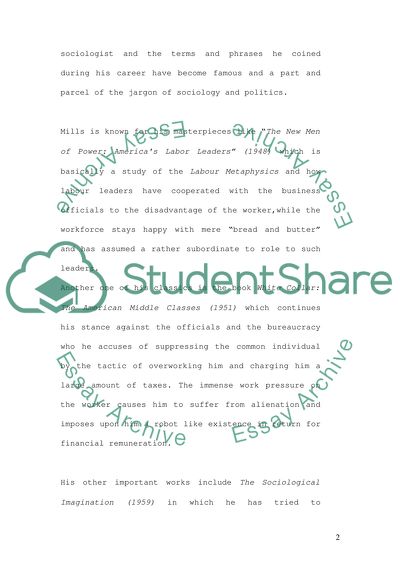Cite this document
(The American Utopian Literature review Example | Topics and Well Written Essays - 1750 words, n.d.)
The American Utopian Literature review Example | Topics and Well Written Essays - 1750 words. https://studentshare.org/politics/1534684-c-wright-mills
The American Utopian Literature review Example | Topics and Well Written Essays - 1750 words. https://studentshare.org/politics/1534684-c-wright-mills
(The American Utopian Literature Review Example | Topics and Well Written Essays - 1750 Words)
The American Utopian Literature Review Example | Topics and Well Written Essays - 1750 Words. https://studentshare.org/politics/1534684-c-wright-mills.
The American Utopian Literature Review Example | Topics and Well Written Essays - 1750 Words. https://studentshare.org/politics/1534684-c-wright-mills.
“The American Utopian Literature Review Example | Topics and Well Written Essays - 1750 Words”. https://studentshare.org/politics/1534684-c-wright-mills.


